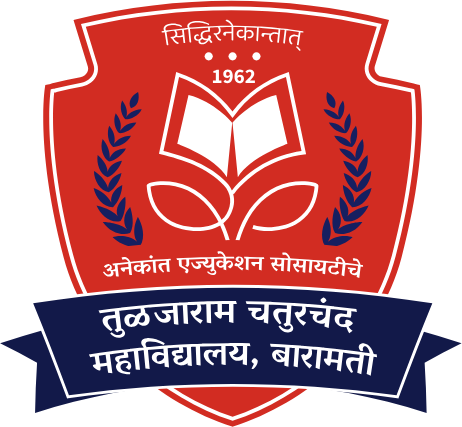Tuljaram Chaturchand College
Of Arts, Science & Commerce, Baramati, Pune (MS). Empowered Autonomous | Religious Minority Institute

Affiliated to Savitribai Phule Pune University

College With Potential For Excellence (CPE)

Re-Accredited by NAAC 'A+' Grade (CGPA 3.55)

ISO 21001:2018 Certified

DST FIST 'O' Level

DBT Star College

Best NSS Unit Award by Govt. of Maharashtra
Academic Notices
© 2024 Tuljaram Chaturchand College. All Rights Reserved.
Design & Developed by PitchTeQ
223109
